The Essentials of Competition in Music
When I think about the Competition in Music, I can’t help but reflect on how it shapes both aspiring musicians and seasoned professionals. It’s not just about the trophies or recognition, but about growth personal, technical, and creative. Having been through several of these contests myself, I know firsthand that it’s like stepping into a whirlwind of emotions and challenges.
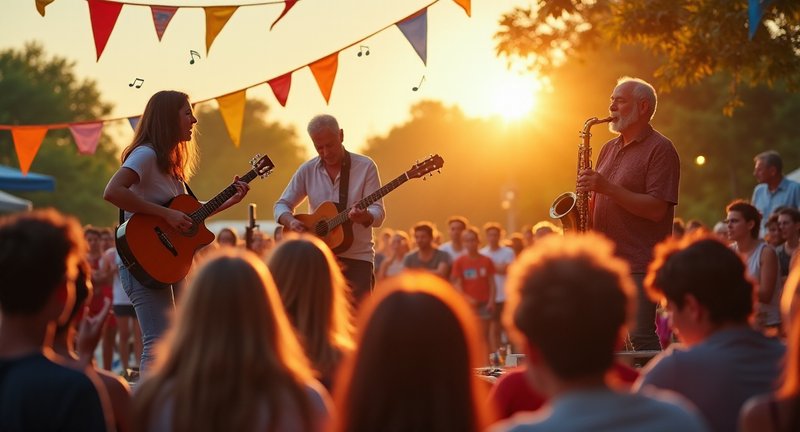
Let’s talk essentials. Here are the key elements of musical contests, in case you find yourself gearing up for one:
-
Preparation is King: Whether it’s weeks of rehearsals or mastering a new piece, preparation makes all the difference. It’s more than just practice; it’s about knowing your material inside and out.
-
Understanding the Rules: Each competition has its own set of guidelines. This can range from specific repertoire requirements to time limits. Make sure to understand these, or you risk disqualification no one wants that!
-
Handling Nerves: Performing under pressure is an art in itself. It’s all too easy to let anxiety take over. I recommend developing a routine to calm your nerves whether it’s deep breathing, visualization, or even a quick chat with fellow musicians before your turn.
-
Judges’ Feedback: You may not always agree with their critique, but take it with grace. Remember, it’s part of the process. Use the feedback to fuel your progress.
Music competitions push you to think on your feet, but more importantly, they challenge your identity as an artist. You’re not just playing for judges or an audience; you’re proving something to yourself. And in the end, isn’t that the real prize?
Exploring the Role of Competition in Music
When I think about the interplay between personal growth and rivalry in the music world, it’s not always a clear-cut journey. As a musician myself, I’ve seen firsthand how healthy rivalry can ignite a spark of creativity but it’s not without its potential downsides.
On one hand, pushing yourself to excel is often driven by a little nudge from knowing others are out there, refining their skills too. This type of challenge can:
- Inspire fresh approaches to playing or composing.
- Introduce you to techniques or styles you wouldn’t have explored otherwise.
- Build resilience through learning how to handle both wins and setbacks.
However, the danger lies in focusing too much on external validation. When you’re constantly measuring your progress against others, the joy of creating can start to fade. I’ve seen talented musicians burn out because they’ve forgotten why they picked up their instrument in the first place.
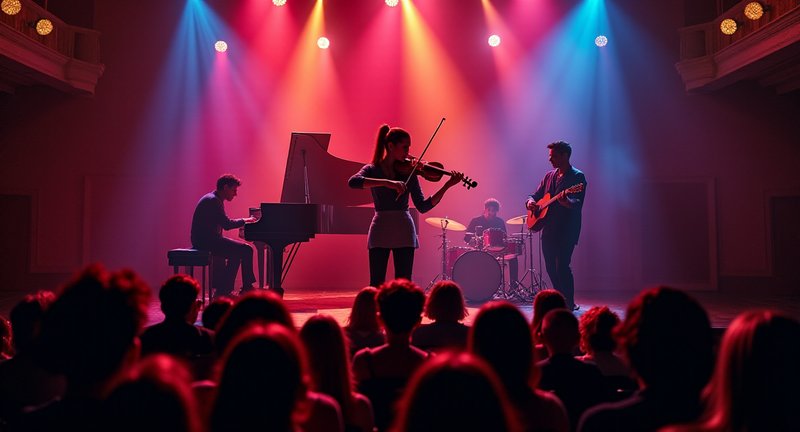
To strike a balance, I like to encourage a mindset where you are your own best competitor. Instead of comparing yourself to others, try:
- Setting personal milestones based on your own journey.
- Collaborating with fellow musicians rather than viewing them as rivals.
- Celebrating improvements, no matter how small they seem.
The idea is to find that sweet spot where you’re motivated by others but not overwhelmed by the need to ‘beat’ them. Music, after all, is supposed to be about expression, connection, and joy those are the things that matter most.
The Landscape of the Music Industry
The music industry has always been a dynamic force, constantly reshaping itself to the sounds of new trends, technology, and listener behavior. I’ve been around long enough to witness its dramatic evolution, and trust me, it’s more unpredictable than a jazz improv session.
There’s something raw and beautiful about the way different genres collide and blend in today’s music world. Whether it’s a classical violin weaving into an electronic beat or a rap verse sliding into an indie rock chorus, the boundaries have almost dissolved. This fusion creates a kaleidoscope of sound that no one could have anticipated a decade ago.
We’re also seeing an era where artists aren’t just musicians. They are storytellers, influencers, and sometimes entrepreneurs, building their brands as much as their melodies. And the tools available today social media, streaming platforms, and even AI are like an artist’s palette, offering endless ways to express and promote their craft.
But it’s not just about making music anymore. Navigating this vast industry involves balancing creativity with business savvy. You need to understand the mechanics behind royalties, copyright laws, and digital distribution. Without that, the art you create could get lost in the whirlwind.
And for listeners? Well, they are spoiled with an endless buffet of options. The challenge now lies in standing out. That’s the puzzle every artist has to solve, and it’s as much about being unique as it is about connecting authentically with people.
Identifying Your Niche
When you’re exploring hobbies, finding your niche is like discovering the sweet spot where passion meets expertise. It’s not always obvious at first. In fact, I remember when I started dabbling in various hobbies there was a lot of trial and error before something clicked. So how do you figure out your niche?
First, think about what excites you. Passion should always guide your exploration, but there’s more to it. Here are a few ways to identify your hobby niche:
-
Reflect on past interests: What activities made you lose track of time as a kid? Often, the things we loved in our youth hold clues to our true interests.
-
Experimentation: Sometimes, your niche finds you through experimentation. Don’t shy away from trying new things. Whether it’s knitting, woodworking, or freestyle rapping, the process of exploration leads to clarity.
-
Consider your strengths: What do people compliment you on? Maybe you have a knack for photography or a natural rhythm with musical instruments. Leverage those strengths and build on them.
-
Find a community: Hobbies are more fun when shared with others. If you’re drawn to something, there’s likely a community around it. Joining clubs, online groups, or attending workshops can help you find like-minded individuals and reinforce your interests.
-
Think long-term: Don’t just pick something trendy. Ask yourself if this is something you’ll enjoy five years down the road. Your niche should be sustainable and continuously inspiring.
Also, your niche is a reflection of your unique combination of passions and abilities. Take your time to find it you’ll know when it feels right.
Building a Unique Brand Identity
Building a unique brand identity in the world of hobbies, especially in the point of music, feels like creating your own sonic fingerprint. From my experience, it’s not merely about the tunes you play; it’s about the entire aura you exude. Here’s how I’ve carved out my niche, and perhaps you can find a spark of inspiration in it too.
1. Define Your Core Values:
Think about what drives you. What messages do you want to convey through your music?
- Authenticity: Be true to your style and beliefs.
- Passion: Let your love for music shine through.
- Connection: Aim to build a community with your audience.
2. Develop a Signature Style:
This is where your uniqueness takes center stage. Embrace the quirks that set you apart.
- Experiment with unconventional instruments or genres.
- Use distinctive visuals think color palettes and typography that reflect your musical essence.
- Create an engaging online presence that showcases your personality.
3. Engage with Your Audience:
Interaction is key to building a loyal fanbase. Share your journey, and let them feel part of your musical odyssey.
- Utilize social media to share behind-the-scenes content and personal stories.
- Host Q&A sessions or live streams where fans can connect directly with you.
- Create exclusive content, like early releases or fan clubs, to foster deeper relationships.
In this vibrant context of music, don’t just blend in; stand out. Your brand identity is a reflection of your journey and passion. Embrace it, cultivate it, and let your creativity ripple through every note you play.
Networking with Industry Professionals
Networking with industry professionals can feel like stepping into a room filled with intriguing possibilities. I’ve often found that these connections spark unexpected conversations and ideas, enriching my understanding of the field in ways I never anticipated.
At events, I’ve learned to approach industry veterans with genuine curiosity. When I asked them about their journeys, the stories they shared transformed my perspective on my own path. It’s about weaving a context of experiences, and every thread adds depth.
Don’t shy away from small talk; it can lead to substantial insights. I once struck up a conversation with a sound engineer in line for coffee, and we ended up discussing innovative audio techniques. It was a delightful reminder that knowledge often surfaces in the most casual of exchanges.
Social media has been a powerful ally in nurturing these relationships. I often engage with professionals on platforms like LinkedIn and Twitter. A thoughtful comment on their post can open doors and spark a dialogue that might lead to collaborations.
It’s essential to be authentic in your interactions. I remember attending a workshop and genuinely complimenting a speaker on their unique approach. That simple gesture led to a deeper conversation and, eventually, an invitation to join a project.
Embrace the awkwardness of initial introductions; it’s part of the journey. Each encounter is a chance to learn and grow. The connections I’ve forged have not only expanded my network but have also fueled my passion for the craft.
As you navigate your own networking adventures, remember that each conversation is an opportunity. Approach them with an open heart and a thirst for knowledge.
Leveraging Social Media for Exposure
In the digital age, social media isn’t just a virtual gathering place; it’s a stage for us hobbyists to shine. I remember when I first started sharing my passion online; it felt like stepping into a whirlwind of opportunities, connecting with like-minded souls across the globe.
Platforms like Instagram and TikTok can be gold mines for exposure. I’ve found that a simple post or a captivating video can lead to an unexpected following. It’s all about finding your niche and showcasing it with a personal touch that resonates with others.
Visual storytelling is a powerful tool. I’ve learned that my hobbies come alive through vibrant images and engaging captions. When I create content that reflects my unique perspective, it often sparks interest and interaction.
Hashtags can feel like magic wands. By using relevant tags, I’ve expanded my reach beyond my immediate circle. It’s fascinating how a single hashtag can lead someone halfway across the world to my work.
Engagement is key in this bustling virtual marketplace. I’ve discovered that replying to comments and participating in conversations fosters community. People appreciate when you take the time to connect, and it often leads to new collaborations.
Don’t shy away from showcasing your journey, the ups and downs. Authenticity speaks volumes in a world full of curated perfection. Sharing your struggles can make your achievements even more relatable and inspiring to others.
As you navigate the social media landscape, remember to have fun and let your passion shine. The right mix of creativity and strategy can turn your hobby into a thriving endeavor.
The Ins and Outs of Competition in Music
In the vibrant world of melodies and rhythms, the clash of talent can feel like a grand spectacle. I’ve often found myself caught in the whirlwind of showcasing skills, where every note played is like a brushstroke on a canvas, and the audience is our gallery.
Navigating these exhilarating moments is a dance of nerves and exhilaration. Each performance is a unique blend of preparation, anticipation, and the thrill of spontaneity. I’ve learned that the real treasure lies not just in the accolades but in the shared experiences with fellow musicians, each striving to find their own voice.
There’s a curious balance between camaraderie and rivalry that unfolds during these events. One moment, you’re bonding over shared struggles and triumphs; the next, you’re pushing each other to reach greater heights. It’s a rollercoaster of emotions that reminds us why we fell in love with music in the first place.
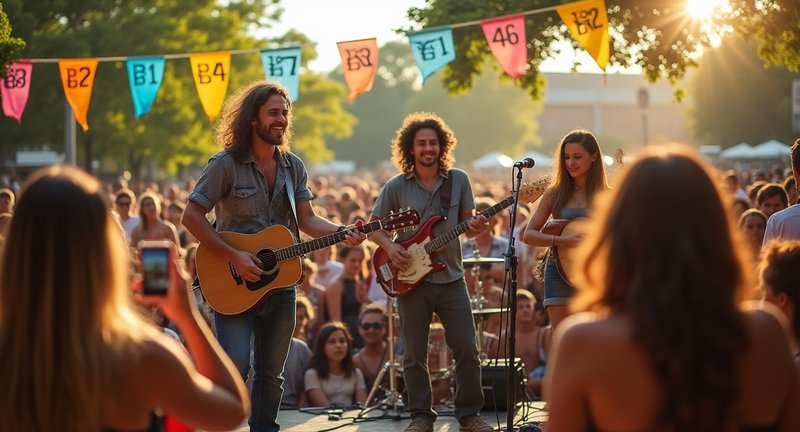
From my perspective, the real magic happens backstage, where creativity brews and friendships blossom. In those quiet moments before the curtain rises, you realize everyone is fueled by a passion that transcends mere recognition. We are all seekers of joy, chasing that elusive high of connection through sound.
As I continue to explore this lively arena, I’m reminded that the beauty of music is not solely in the outcome but in the journey. It’s about weaving stories through notes, crafting a narrative that resonates with anyone willing to listen. After all, in the symphony of life, we are all musicians in our own right.
Understanding Market Trends
Understanding market trends in hobbies, particularly music, can feel like trying to catch smoke with your bare hands. It’s elusive yet ever-present, always shifting beneath the surface.
I remember diving into the world of music with a naive enthusiasm, unaware of the fierce undercurrents of competition in music that lay ahead. It’s fascinating how many aspiring musicians flood the scene, each with unique sounds, styles, and stories to tell.
This influx of talent can be both invigorating and intimidating. One day, you might discover an artist who completely alters your perception of what’s possible, and the next, you might find yourself questioning your own creative voice amidst the noise.
Trends don’t just shape what we listen to; they also dictate what instruments fly off the shelves and what workshops attract eager learners. Watching this dance of innovation and nostalgia unfold is akin to observing a master painter blend colors on a canvas.
For hobbyists, understanding these trends isn’t just about survival; it’s about thriving in a community. Engaging with what’s current helps you connect with fellow music lovers, and allows you to share your own creative journey.
So, if you’re just starting or have been around the block a few times, take a moment to step back and observe the landscape. It’s a wild ride, but embracing these trends might just unlock new paths in your musical adventure.
Crafting Engaging Content
Crafting engaging content is like weaving a colorful context of experiences, emotions, and creativity. It’s not just about throwing words together; it’s about creating a magnetic pull that draws your audience in, making them feel like they’re part of the journey. Having dipped my toes into various hobbies, I’ve discovered some secret ingredients that can transform plain content into something unforgettable. Here’s what I’ve learned:
-
Authenticity is Key: When I share my stories or insights, I aim to keep it real. Authenticity resonates with readers; they can sense when you’re genuine. Don’t be afraid to sprinkle in your quirks or little mishaps these moments make your narrative relatable.
-
Visual Appeal: Imagine reading a block of text that looks as inviting as a cold bowl of oatmeal. Instead, opt for visuals! Use images, infographics, or even doodles to break up the monotony. It’s like adding toppings to your oatmeal suddenly, it’s a feast!
-
Tell a Story: I’ve found that weaving personal anecdotes into my content creates a narrative arc that captivates. Instead of merely stating facts, share your journey, your hurdles, and triumphs. This storytelling aspect turns bland information into an adventure.
-
Engage the Senses: Don’t just write what you think; describe what you see, hear, smell, and feel. Paint vivid pictures with words. When I write about a serene hiking trail, I try to evoke the scent of pine and the sound of rustling leaves it’s like inviting readers to step into my shoes.
-
Call to Action: Encourage readers to engage. Whether it’s trying a new hobby or sharing their thoughts, a gentle nudge at the end can spark interaction. I often ask readers to share their experiences, creating a community around our shared passions.
Creating engaging content is an art, one that transforms the ordinary into the extraordinary. So grab your creative brush and start painting!
Utilizing Music Distribution Platforms
When I first dipped my toes into the vast ocean of music distribution platforms, I was overwhelmed. Each platform felt like a unique world, brimming with possibilities. Whether you’re a budding artist or a seasoned creator, these platforms can be your golden ticket to reaching a global audience. Here’s how to make the most of them:
-
Choose the Right Platform: Not all platforms are created equal. Some cater to specific genres or audiences. For example:
- Spotify: Great for streaming and playlists.
- Bandcamp: Ideal for indie artists looking for direct sales.
- SoundCloud: Perfect for collaboration and sharing rough cuts.
-
Optimize Your Profile: Think of your profile as your digital stage. Make it shine! Use high-quality images, engaging bios, and link to your social media. Your bio should reflect your musical journey, perhaps weaving in a quirky story that adds a personal touch.
-
Engage with Your Audience: Don’t just drop your music and dash. Engage with your listeners! Respond to comments, share behind-the-scenes snippets, and consider hosting live Q&As. Building a community around your music is invaluable.
-
Utilize Analytics: Most platforms offer insights into who’s listening to your music. Dive into this data! It can reveal trends, demographics, and even which songs resonate most with your audience.
-
Experiment with Releases: Don’t be afraid to mix things up. Release singles, EPs, or even a concept album. Each format has its charm, and you might find unexpected success with a particular approach.
Diving into music distribution platforms can be a wild ride, but with a little strategy and creativity, you’ll find yourself navigating this landscape like a seasoned pro.
Collaborating with Other Artists
When I think about collaborating with other artists, a sense of excitement washes over me. It’s like throwing a handful of paint onto a canvas and watching the colors merge and transform into something entirely unexpected.
There’s a unique thrill in joining forces with fellow creatives. Each artist brings their own flavor to the mix, and it’s fascinating to witness how different styles and perspectives can harmonize into a beautiful symphony of expression.
In my journey, I’ve found that these partnerships often lead to the most rewarding projects. The brainstorming sessions are like a dance of ideas, with each person adding their steps until we create a choreography that feels effortless and alive.
Sometimes, the most enlightening moments come from those spontaneous exchanges. I’ve experienced countless times when a simple conversation sparked a new direction, nudging me to explore uncharted territories in my craft.
However, it’s not always a smooth ride. There are moments of friction and differing visions, but I’ve learned that these clashes can serve as fertile ground for growth. When we embrace our differences, we often stumble upon the most innovative solutions.
So, dear reader, if you ever get the chance to collaborate, seize it! These artistic alliances can breathe new life into your work, challenge your perceptions, and ignite a spark of creativity you never knew existed.
Strategies for Live Performances
As for live performances, the stage can feel like a magical realm where every note creates a unique context of sound. I’ve learned that captivating an audience goes beyond just playing your instrument or singing; it’s about weaving your essence into every moment.
One strategy I’ve found particularly useful is to tell a story through your set. Think of each song as a chapter that unfolds, allowing listeners to connect emotionally. It’s like painting a picture where every brushstroke conveys a feeling; they need to feel something real.
Engaging with the crowd is another golden key. When I step onto the stage, I remind myself to lock eyes with the audience. Those brief moments of connection can spark a shared experience, turning a simple performance into a collective journey.
Don’t underestimate the power of spontaneity. Sometimes, breaking away from the planned setlist or throwing in an unexpected cover can invigorate the atmosphere. I remember one night when I played an impromptu acoustic version of a popular song. The audience lit up, and it felt like we were all part of something special.
As a matter of fact, embrace the nerves. They can be your allies. Instead of trying to suppress that fluttering in your stomach, channel it into your performance. Each heartbeat can fuel your passion and translate into an electrifying experience for everyone in the room.
Live performances are a dance of spontaneity and connection. When you infuse your unique spirit into the experience, the audience won’t just listen they’ll feel, remember, and return for more.
Navigating Music Competitions and Contests
Navigating music competitions and contests can feel like stepping into a whirlwind of nerves and excitement, but trust me, it’s an adventure worth embarking on. From personal experience, I can tell you that participating in these events offers a unique blend of growth, exposure, and a dash of healthy rivalry. Here’s how to tackle it like a pro:
Preparation is Key
- Choose Your Piece Wisely: Select a piece that showcases your strengths and resonates with your style.
- Practice with Purpose: Set clear goals for each practice session. It’s about quality over quantity.
- Mock Performances: Gather friends or family for feedback. You’ll get used to the spotlight without the pressure of an audience.
Embrace the Process
- Mindset Matters: Shift your perspective from “I must win” to “I’m here to learn.” Each experience adds to your artistry.
- Connect with Fellow Musicians: Share insights and stories. You’ll find camaraderie in the shared nerves and triumphs.
On the Day of the Event
- Arrive Early: Familiarize yourself with the space. This helps calm those pre-performance jitters.
- Warm-Up Wisely: A solid warm-up can make all the difference. Take your time to settle into your rhythm.
- Enjoy the Experience: Amid the tension, remember to soak in the atmosphere. The energy of the audience and fellow participants is electrifying!
While the outcome may seem significant, the journey filled with lessons and connections is what truly enriches your musical path. So, lace up your shoes, grab your instrument, and dive into the exhilarating world of music contests!
Embracing Feedback and Criticism
Embracing feedback and criticism in any hobby, especially music, can feel like riding a rollercoaster thrilling yet terrifying. In my journey as a music enthusiast, I’ve learned that welcoming constructive criticism is not just beneficial; it’s essential for growth. Here’s how I’ve navigated this intriguing landscape:
-
Shift Your Mindset: Instead of viewing criticism as a personal attack, I’ve started seeing it as a treasure map. Each piece of feedback highlights areas for improvement, guiding me towards my musical goals.
-
Seek Out Diverse Perspectives: Engaging with various listeners can provide a wealth of insights. From seasoned musicians to casual fans, everyone has a unique take that can enrich my understanding. It’s like collecting colorful threads to weave into the fabric of my craft.
-
Practice Active Listening: When someone offers feedback, I’ve learned to listen with intent. Rather than preparing a defense, I focus on understanding their perspective. This practice not only enhances my relationships but also refines my skills.
-
Create a Safe Space for Feedback: I encourage my friends and fellow musicians to share their thoughts openly. We’ve created a supportive environment where honesty reigns supreme, allowing us to grow together rather than competing against one another.
-
Reflect and Iterate: After receiving feedback, I take time to reflect on it. Not every critique will resonate, and that’s perfectly okay! The key is to discern which advice aligns with my artistic vision and which does not.
Embracing feedback isn’t merely about enduring criticism; it’s about transforming it into an instrument for growth. So, the next time you find yourself faced with feedback, remember that it’s not just noise it’s an opportunity to fine-tune your melody.
Solving Your Queries
What is the biggest music competition?
The biggest music competition in the world is often considered to be the Eurovision Song Contest. Held annually since 1956, this event features participants from various European countries, showcasing original songs. The competition garners massive viewership, with millions of fans tuning in to watch performances and vote for their favorites. Each country sends one representative, creating a vibrant mix of genres and styles, making it a celebration of music and culture on a grand scale.
Why are music competitions important?
Music competitions play a crucial role in an artist’s development and exposure. They provide a platform for emerging musicians to showcase their talents, gain recognition, and network with industry professionals. Additionally, competitions often offer valuable feedback from judges, which can help participants refine their skills. They foster a sense of community among musicians and can lead to opportunities for scholarships, recording contracts, or performance gigs, ultimately contributing to the growth of their careers.
Why is music competitive?
Music is competitive because it attracts passionate individuals striving for recognition and success. The creative industry is filled with talented artists, making it essential to stand out. Competitions encourage musicians to push their boundaries, develop their craft, and pursue excellence. This competitive spirit can foster innovation, driving artists to experiment with new styles and techniques. Furthermore, the competitive landscape can lead to greater public interest in music, benefiting artists and the industry as a whole.
How to do well in a music competition?
To excel in a music competition, preparation is key. Start by thoroughly understanding the competition’s rules and requirements. Choose a piece that showcases your strengths and resonates with the audience. Practice diligently, focusing on technical precision, emotional expression, and stage presence. Additionally, seek feedback from trusted mentors or peers. On the day of the competition, stay calm, breathe deeply, and connect with the audience. Confidence and authenticity can make a significant difference in your performance.
What is the world’s best musicians competition?
The International Chopin Piano Competition is often regarded as one of the world’s most prestigious musicians’ competitions. Held every five years in Warsaw, Poland, it celebrates the legacy of composer Frederic Chopin. Pianists from around the globe participate, showcasing their interpretations of Chopin’s works. The competition has a rich history, launching the careers of many renowned pianists. Its rigorous selection process and high standards ensure that only the most talented musicians are recognized and celebrated.
What is the biggest singing competition in America?
The biggest singing competition in America is ‘American Idol,’ which premiered in 2002. This reality television show has catapulted countless contestants to fame and has become a cultural phenomenon. Participants audition in front of a panel of judges, showcasing their vocal talents. The show allows viewers to vote for their favorites, adding an interactive element. Its impact on the music industry is significant, as many former contestants have gone on to have successful careers in music.
What happens in a music competition?
In a music competition, participants typically perform selected pieces before a panel of judges and an audience. The competition may have various rounds, starting with auditions, followed by semifinals and finals. Judges evaluate performances based on criteria such as technique, musicality, and stage presence. Feedback is often provided, and winners may receive awards, scholarships, or opportunities for further performances. The atmosphere is usually electric, filled with excitement and anticipation as artists strive for recognition and success.
Why should I join competitions?
Joining music competitions can significantly benefit your artistic journey. They provide a structured environment to showcase your talents and receive constructive feedback from experienced judges. Competitions can boost your confidence, enhance your performance skills, and connect you with fellow musicians. Additionally, they often offer exposure to industry professionals and potential opportunities for scholarships, gigs, or recording contracts. Engaging in competitions fosters a sense of achievement and can motivate you to pursue your musical aspirations with greater determination.
Why do people do competitions?
People participate in competitions for various reasons, including personal growth, recognition, and the thrill of performance. Competitions challenge individuals to refine their skills, push their boundaries, and set higher standards for themselves. They also provide a platform to gain exposure and potentially launch a career in music. The competitive environment fosters camaraderie among participants while encouraging creativity and innovation. Also, competitions serve as a means to celebrate talent and connect with others who share a passion for music.
What is the world’s largest song competition?
The world’s largest song competition is the ‘International Songwriting Competition’ (ISC). This annual event attracts thousands of entries from songwriters across the globe. It aims to provide a platform for songwriters to showcase their work and gain recognition. With various categories, including pop, rock, country, and more, the ISC offers significant prizes, including cash awards and industry exposure. This competition not only highlights exceptional songwriting talent but also supports emerging artists in their musical journeys.
What is the biggest songwriting competition?
The biggest songwriting competition is often considered to be the ‘John Lennon Songwriting Contest.’ Established in 1997, this annual event honors the legacy of the legendary Beatle and encourages songwriters to showcase their talents. With multiple categories and opportunities for recognition, the contest attracts participants from around the world. Winners receive prizes such as cash awards, music gear, and the chance to have their songs promoted in the industry. This competition emphasizes the importance of creativity and originality in songwriting.




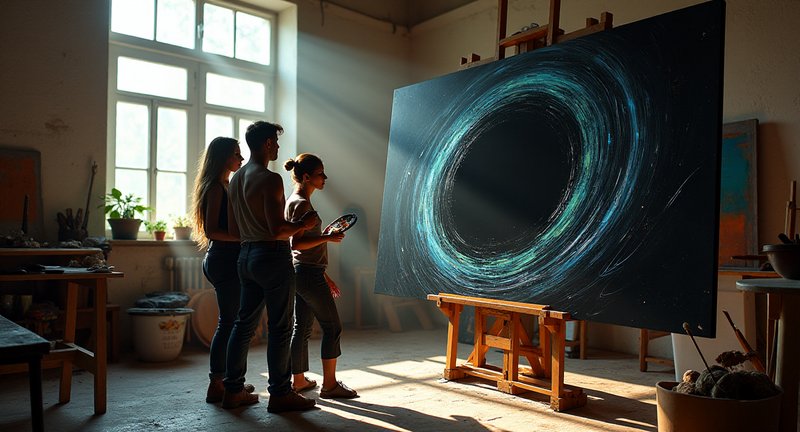

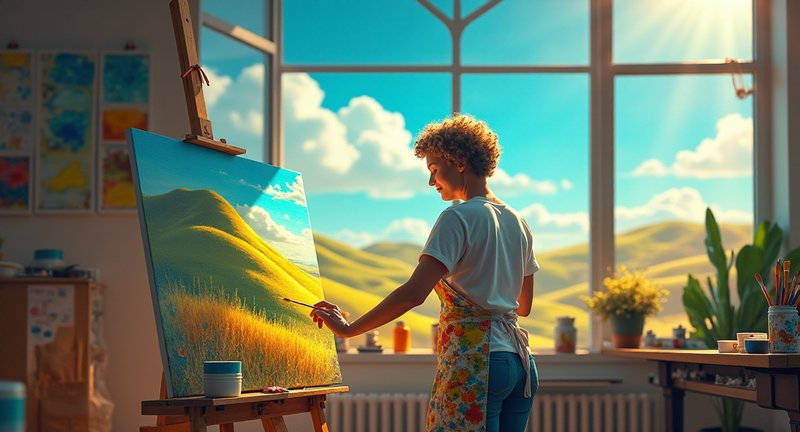
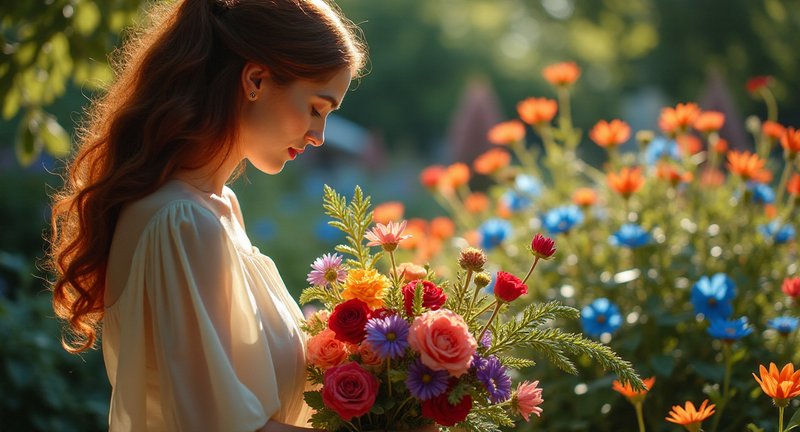

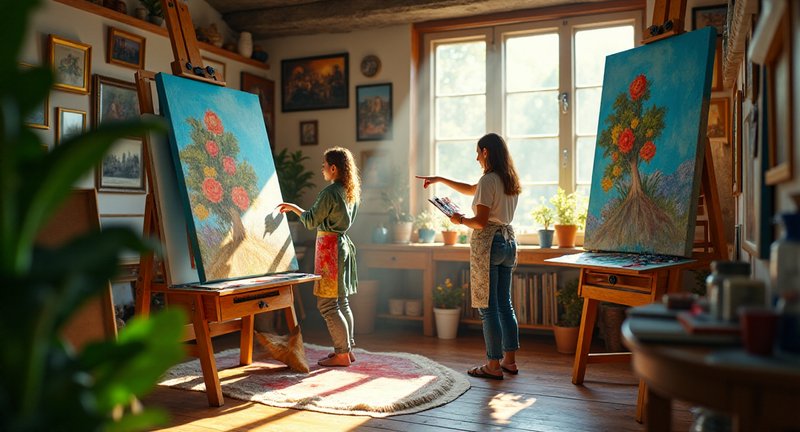
I absolutely love how you captured the essence of finding one’s niche! I remember my own journey vividly, filled with numerous experiments. It took me a while to figure out that my childhood love for painting was more than just a pastime; it was my true passion! Your point about reflecting on past interests really resonates with me. It’s so easy to forget what we enjoyed as kids amidst adult responsibilities. I also appreciate the emphasis on community. When I joined a local art club, my creativity soared! Sharing ideas and techniques with others made all the difference. Plus, trying out new hobbies, like pottery and photography, has been incredibly fulfilling. It’s amazing how much joy and fulfillment can come from those moments of experimentation! I’m excited to see where this exploration leads next. Thanks for sharing these insightful tips!
Wow, you really captured the beauty of how genres mix today. I’ve always been fascinated by how an unexpected fusion can create something magical, like when hip-hop and classical blend together. The tools available now, especially social media, have changed the game for artists in such a cool way. It’s exciting but also so challenging to stand out with so much music out there.
The concept of balancing rivalry and personal growth in music is something I’ve often grappled with. I totally agree that a little competition can fuel creativity – it’s pushed me to try new techniques I wouldn’t have otherwise. But you’re so right about the danger of focusing too much on external validation. I’ve seen friends burn out because they lost sight of their love for the music itself. I try to remind myself to compete with the musician I was yesterday, not with others. Setting personal milestones keeps me motivated, and collaborating with other artists has led to some of my most fulfilling projects. It’s great that you emphasize the need to celebrate even the smallest victories – music is about joy and expression, after all, not just comparison. Thanks for such a thoughtful perspective!
I love how you mention that competitions aren’t just about trophies but personal growth. It’s such a real experience! As a fellow musician who’s been in a few contests, I can relate to that whirlwind of emotions. The preparation tips are spot on, especially handling nerves. Deep breathing has saved me more times than I can count! The real prize really is what we prove to ourselves.